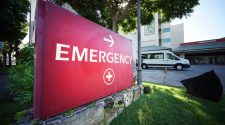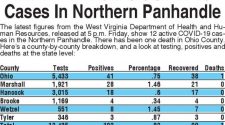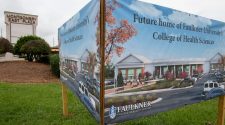The cell tower conversation is timely and lends itself to discussing three pertinent issues we face as a community—lack of reliably available cellular service across town, lack of broadband access choice, and lack of a strategic approach to planning for and addressing town technology issues.
For the first issue, Harvard needs to step into the 21st century. We need to recognize that, along with rural character and excellent schools, the modern workforce is also looking for basic technology infrastructure that allows it to work where it lives. Harvard is and has been falling increasingly behind the curve in its ability to support working from home reliably.
The working from home trend had been rising even before COVID-19. The background frustration of quaint inconvenience, oft shrugged off because we love our town, has rapidly become a foreground problem. As working from home becomes the norm, the expectations for better performance and reliability of basic communications infrastructure, and of those who rely on it to present themselves professionally, have risen. That will continue. When you drop off that client conference call, again, it’s hard to see the forest for the trees instead of just a cell signal obstacle. Better connectivity would also be an obvious public safety improvement.
On the second issue, current 4G technology has a lot to offer Harvard. 5G is not a panacea nor is it coming to a telephone pole near you soon. There are considerable hurdles to overcome before 5G will have wide presence, yet cellular services available today offer 4G data access that can be a backup choice to Charter internet: When the power goes out, use your cell or hotspot for that Zoom call.
Finally, the third issue, but perhaps the most important, is that if the town creates the infrastructure, several technologies, including 5G, can benefit Harvard. We can likely also recognize cost savings by planning and harmonizing efforts. But there are increasing risks in technology adoption, especially for municipalities. It is a fact that cybersecurity issues are on the rise as municipalities are identified as soft targets. All of this underscores the town’s need for a technology strategy.
Olivier Beauchemin
Jacob Gates Road
















